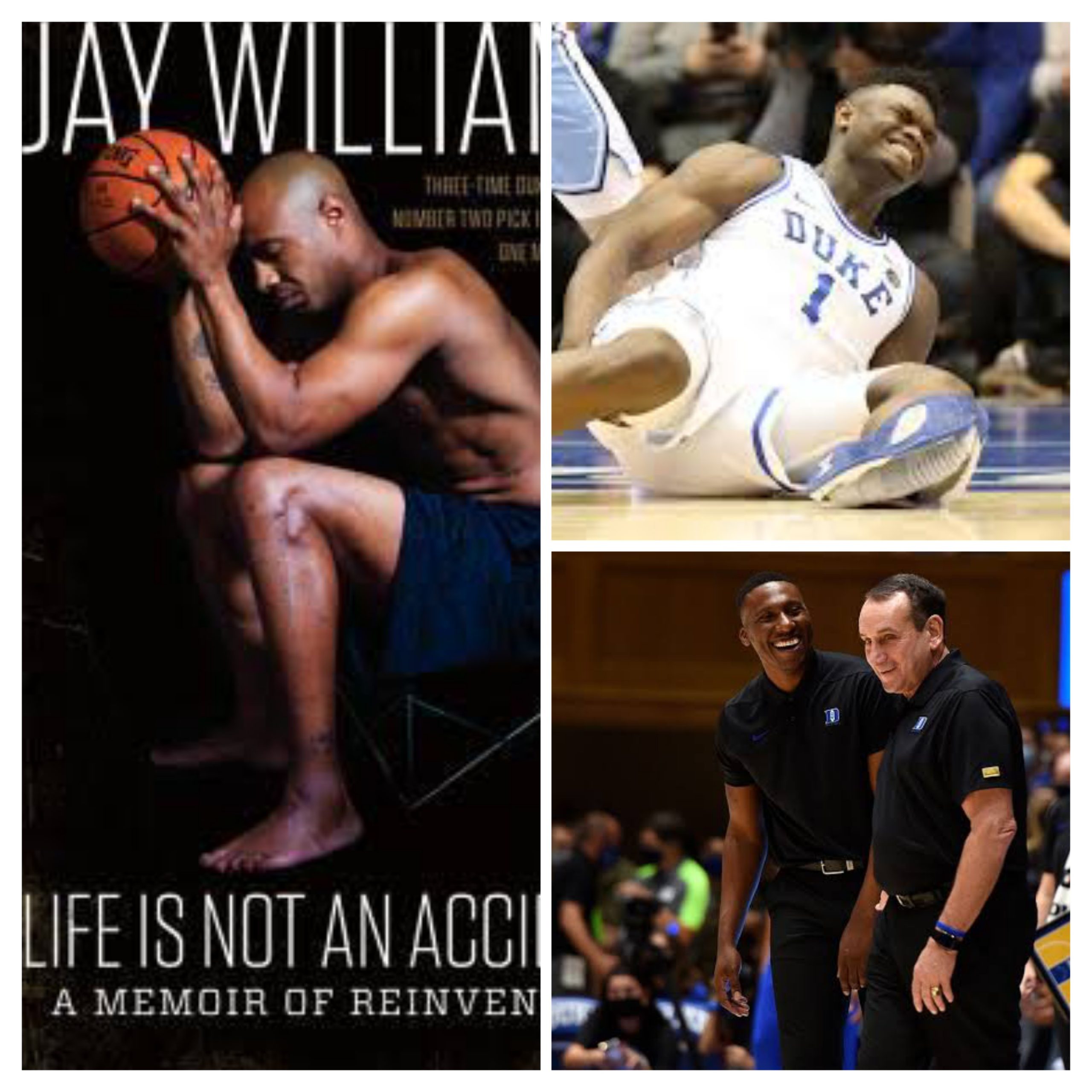For the Brotherhood: The Tragic Loss That United Duke Basketball Forever
In the historic halls of Cameron Indoor Stadium, where echoes of championships and thunderous cheers linger in the rafters, there’s a deeper story — one not captured by banners or statistics. It’s a story of heartbreak, healing, and brotherhood. The kind of story that shows why Duke Basketball is more than just a program — it’s a family.
The Rise and Fall of a Star
In 2001, Duke fans watched in awe as a fearless point guard named Jay Williams led the Blue Devils to a national title. His speed, vision, and heart made him the face of college basketball. He wasn’t just good — he was transformational. Coach Mike Krzyzewski knew it. The NBA knew it. The Chicago Bulls drafted him No. 2 overall in 2002.
But in 2003, tragedy struck.

Williams, just 21 years old, crashed his motorcycle in Chicago — a vehicle he wasn’t even licensed to drive, and one his contract forbade him from riding. The injuries were devastating. He shattered his leg, tore ligaments, and faced nerve damage so severe that doctors weren’t sure he’d walk normally again, let alone play basketball.
His NBA career was over before it had truly begun.
More Than a Coach
When the news broke, many assumed Duke would quietly move on. But Coach K didn’t let that happen. He visited Williams in the hospital, spoke to his family, and made it clear: Jay wasn’t just a former player — he was still part of the Brotherhood.
In the years that followed, Williams would battle depression, addiction, and self-doubt. But he never lost the support of the Duke family. He returned to Durham to speak to players. He found purpose in storytelling as a broadcaster and author. And he shared his pain — not as a warning, but as a message: this program will never give up on you.
To this day, Jay Williams’ name isn’t just remembered for the title he brought home. It’s remembered for the strength he showed after the lights went out.
When Zion Fell

Fast forward to February 20, 2019.
The stage was set for one of the most hyped college basketball games in history: Duke vs. North Carolina. President Barack Obama was in attendance. Millions were watching. Just 33 seconds into the game, the unthinkable happened.
Zion Williamson, the projected No. 1 NBA Draft pick, planted his foot — and his Nike sneaker exploded. He collapsed to the floor, clutching his knee. The arena went silent. Was his season — and future — over?
The injury wasn’t season-ending. But what followed was perhaps more stunning: Zion didn’t sit out. He didn’t protect his draft stock. He came back. He fought. He chose to wear Duke across his chest again.
Why? Because of the Brotherhood.
“I wasn’t going to leave my brothers like that,” Zion said. “We had something special.”
The Pain Behind the Scenes

The Duke family’s bond isn’t only tested on the court. It’s tested in hospital rooms, in funeral homes, in moments of silence and sorrow.
Nolan Smith, a national champion and fan favorite, lost his father — former NBA star Derek Smith — when he was just eight years old. It shattered his world. When he arrived at Duke, he found more than a team. He found healing. Coach K and his staff embraced him, mentored him, and walked with him through the grief.
Years later, Nolan would return to Duke as an assistant coach. His pain became his purpose. He dedicated his life to mentoring young players — not just in basketball, but in life.
The Brotherhood Is Real
For outsiders, “The Brotherhood” might sound like branding — a catchy name for Duke’s alumni network. But for those who’ve lived it, it’s something sacred.
It’s Coach K personally calling a player’s mother during chemotherapy.
It’s former players flying in from across the country to support each other during family funerals.
It’s Chris Carrawell mentoring troubled teens in Durham. It’s Grayson Allen turning boos into motivation. It’s Jayson Tatum crediting Duke for shaping him “into a man.”
It’s why NBA stars like Kyrie Irving and RJ Barrett still visit practice, years after leaving campus. Why players choose to stay connected, not for clout — but for the culture.
More Than a Program
Duke Basketball has five national championships, dozens of NBA stars, and a historic coach. But what truly sets it apart is the heartbeat underneath the wins and losses.
It’s a place where pain is shared, not hidden. Where failure isn’t final. Where players leave with more than a degree or a stat line — they leave with family.
Because at Duke, the Brotherhood isn’t just a slogan.
It’s a lifeline.





























